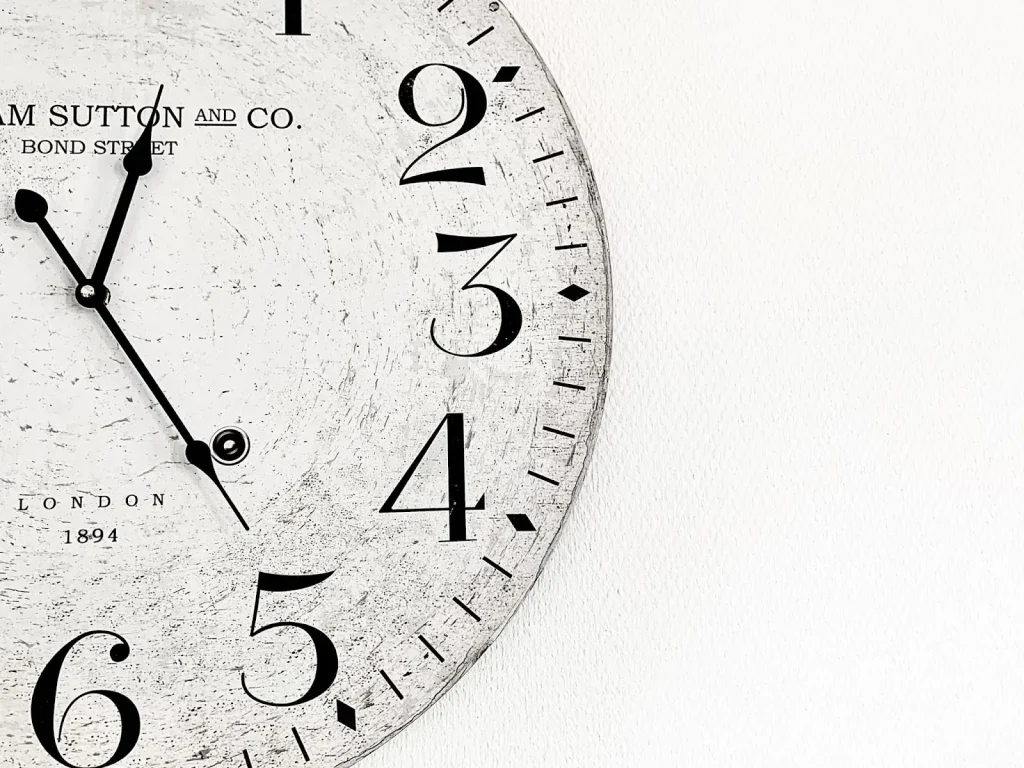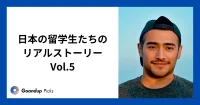What time is "first thing in the afternoon?" Meaning, paraphrase and business usage explained.

This article details the meaning, example sentences, and specific usage of the term "午後一 (gogoichi)".
We will also explain the nuances of this term, so you can learn how to use it appropriately in business situations.
▼Goandup Picks Click here for recommended articles!
- Required before studying abroad! Goandup Nihongo+, an online Japanese language learning service
- This page introduces services for foreigners who wish to study in Japan or improve their Japanese language skills to learn Japanese online.
- Goandup Salon" community for foreigners living in Japan
- We introduce an online community where foreigners living in Japan can exchange information and interact with each other to support their life in Japan.
- Goandup Study" supports foreigners who want to study in Japan.
- This section introduces study abroad support services that provide comprehensive support to foreigners who wish to study in Japan, from preparation for study abroad to living in Japan.
- Where can I buy a prepaid SIM in Japan? Recommended SIM cards for foreigners are also introduced.
- How to purchase a prepaid SIM and suitable SIM cards for foreigners.
- The Complete Guide to Pocket Wi-Fi in Japan for Foreigners!
- We introduce how to select and recommend pocket Wi-Fi products that can be used conveniently in Japan.
- The Complete Guide to Finding a Job in Japan! Finding a job, changing jobs, and part-time work for foreigners
- This site provides foreigners who want to work in Japan with comprehensive information on how to find a job, recommended job sites, and other information necessary to find a job.
What does "午後一" mean?

What exactly does "午後一 (gogoichi)" mean? First, let's look at the meaning and nuances of 午後一.
"First thing in the afternoon, right after the lunch break."
午後一" means "午後一."Number 午後一The term is an abbreviation for "The first hours of afternoon operations beginIt means "immediately after the end of the lunch break at the office or workplace. When used in business, it means "immediately after the end of the lunch break at the office or workplace.
It is not a word that describes a definite time.
Even though it is right after the lunch break, the time of the lunch break varies from company to company: some may go until 1:00 p.m., others until 1:30 p.m., and so on. So, does "午後一" mean 13:00 or 13:30? There is no general answer to this. This is because the expression "午後一" may refer to different times depending on the context and company.
The term "午後一" is somewhat of an expression for "the time when afternoon work begins in each workplace and culture," not a clearly defined time. Therefore, in business communication, it is important to make sure that the other party shares the same perception.
For use in an international business environment
It is also important to consider the understanding and cultural background of the other party when using "午後一". Especially in an international business environment, this expression may not be understood. Therefore, when communicating with foreigners, it is preferable to explain clearly, for example, "the first hour of the afternoon," or to use a specific time.
What is the English expression that means "午後一"?
The English word for "午後一" is "first thing in the afternoon". If you want to say "午後一 tomorrow," you can say "first thing in the afternoon tomorrow.
Similarly, "first thing in the morning" is "first thing in the morning. If the lunch break is until 1:00 p.m., "午後一" means 1:00 p.m. If the lunch break is until 1:30 p.m., "午後一" means 1:30 p.m.
If you want to know more about ◆Business Japanese, check out the following articles!
- What does [understand well] 「逆に」 mean? Thesaurus and example sentences.
- Explains the meaning of the business term "draft". Is it different from draft beer?
- What is the meaning and usage of the word "drop"? And example sentences in business situations.
- What does "zakkuri" mean and how is it used? Expressions in business situations are also introduced.
- What does "ass" mean as used in business conversation?
- What does "Tatakidate" mean in Business x Japanese? Explanation + Example Sentences
Example sentences and usage of "午後一" in business

Now that you understand the meaning of "午後一," let's look at some example sentences and usages that can actually be used in business situations.
We have a meeting tomorrow at 午後一.
The "We have a meeting tomorrow at 午後一" means we have a meeting right after lunch tomorrow!
午後一 to call the trading partner.
I will call my business partner at 午後一" means that I will call my business partner as soon as I finish my lunch break today.
Notes on the use of "午後一

There are some things to keep in mind when using the term "午後一" in business. Be careful not to use it incorrectly and fail to do business.
It can be rude to use it with a boss or superior.
The expression "午後一" may give a casual impression and should be used with caution in formal situations or when addressing a superior or superior. When using it with a supervisor or superior, it is better to say "午後一 number" without abbreviation.
Should not be used to tell the exact time.
午後一" is not a term that specifies a specific time, but rather an expression with some latitude. Therefore, when a clear time needs to be communicated, it is more appropriate to use a specific time (e.g., "13:00" or "13:30").
午後一" thesaurus and paraphrase

An analogue of "午後一" is "午後一".first thing in the afternoon". Since "noonichi" means "first thing at noon," or "right after noon," it is almost the same as "午後一.
Paraphrases also include words such as "first," "first," "first thing," and "first thing first. These are all words that indicate the beginning or first of something, and are consistent with the nuances of "午後一. For example, they may be used in the context of "first meeting" or "first appointment.
A slightly different but similar expression to the thesaurus is "first thing in the morningThere is also the word "first thing in the morning". This, of course, means "first thing in the morning. This "first thing in the morning" means the first hour of the day, or the first thing done in the morning. Thus, expressions using "ichi" to refer to a time of day are useful in emphasizing the beginning of that time of day.
Words like "午後一" and "first thing in the morning" are especially effective in business settings. These words can be used to clarify schedules and indicate priorities for meetings, appointments, etc. For example, "Let's make a decision at the 午後一 meeting" or "Please submit your report first thing in the morning" are common usages.
Serious employment support to help you realize your dream of working in Japan!

Do you want to work in Japan?
Let us "Goandup" make that dream a reality!
【 Program Features 】
✅ JLPT N3 level Japanese language acquisition
✅ Thorough preparation for the specific skills test
✅ Full support for job hunting in Japan
Business-focused one-on-one lessons will help you find a job in Japan in the shortest possible time.
【 Program Menu 】
- Individual Japanese language lessons
- Intensive curriculum to obtain N3, especially specialized lessons for business Japanese that can be used at work.
- Intensive curriculum to obtain N3, especially specialized lessons for business Japanese that can be used at work.
- Preparation for the Specific Skills Test
- Customized materials for specific skill tests will be used to focus on frequently asked questions and learning to pass the test.
- Customized materials for specific skill tests will be used to focus on frequently asked questions and learning to pass the test.
- Resume and CV support
- To create resumes and CVs tailored to Japanese corporate culture, and to brush up on self-promotion and motivation for application.
- To create resumes and CVs tailored to Japanese corporate culture, and to brush up on self-promotion and motivation for application.
- Interview Preparation
- Guidance on areas for improvement through mock interviews and feedback based on corporate interview scenarios. Learn interview etiquette and behavior unique to Japan.
- Guidance on areas for improvement through mock interviews and feedback based on corporate interview scenarios. Learn interview etiquette and behavior unique to Japan.
- career consulting
- Provide introductions to companies that match the participant's career goals, select companies to apply to, and provide advice on the level of knowledge required by the companies to which the participant is applying.
- Provide introductions to companies that match the participant's career goals, select companies to apply to, and provide advice on the level of knowledge required by the companies to which the participant is applying.
- Chat Support
- In addition to one-on-one individual lessons, we also accept casual questions via DM (visa application, living support, assistance in finding a room, etc.).
If you are serious about your career in Japan, join us now!
▶︎ for more informationclick here.
We will do our best to support your success in Japan!
summary
This article has discussed the frequently used business term "午後一". It is important to understand that this expression, which indicates the start of afternoon business, does not refer to a fixed time, and its meaning varies by workplace and situation. In an international setting, the understanding of this expression may not be shared, and direct time expressions should be conveyed when communicating a definite time.
In addition, "午後一" tends to give a casual impression, and it is better to use the expression "午後一 number" when using it for a boss or superior.
Furthermore, analogous expressions such as "first thing in the afternoon" and "first thing in the morning" exist, as well as paraphrases such as "first thing" and "first thing", which are useful for expressing schedules and priorities in business situations.
Your support will help us!
Thank you for visiting Goandup Picks. Our mission is to provide you with more useful information to show the world what Japan has to offer.
Your support will help us to further enhance our activities, so please support us!






